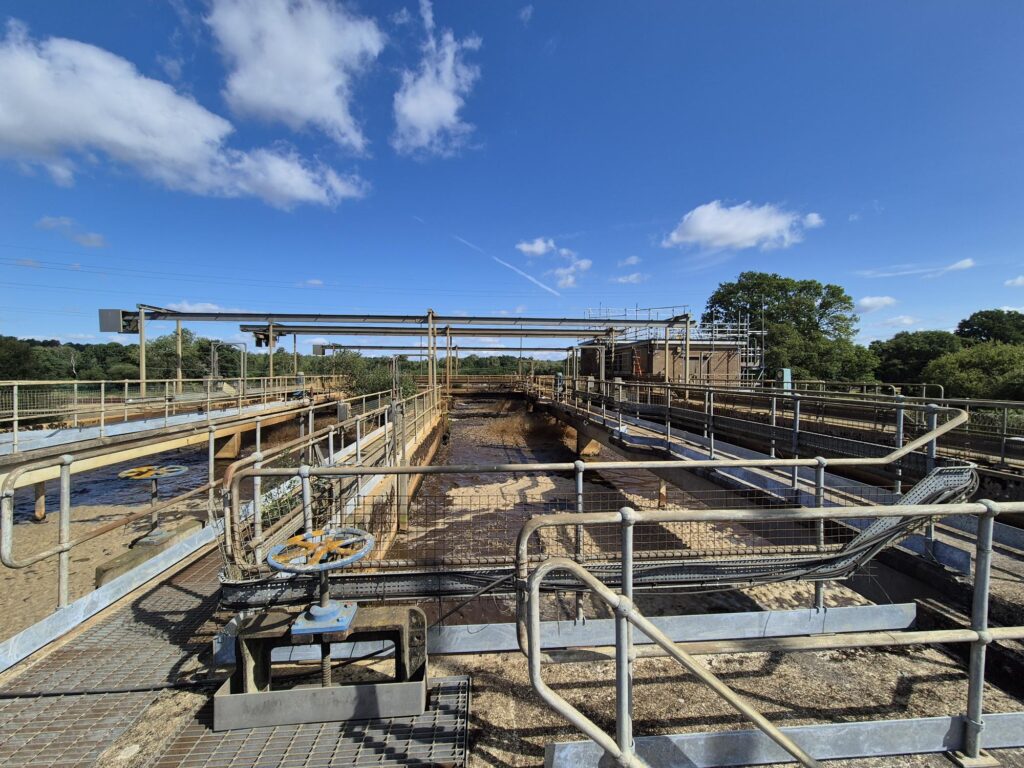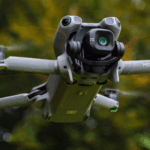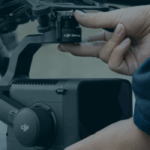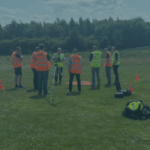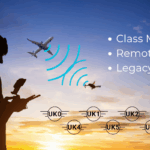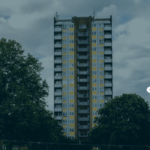Raising Standards: How Iprosurv Uses Drone Technology to Make LOLER Inspections Safer for Everyone
At Iprosurv, our mission is simple: to deploy drone technology where it makes the biggest difference. One of the clearest examples of this is our ongoing partnership with Thames Water, where we carry out statutory LOLER (Lifting Operations and Lifting Equipment Regulations 1998) inspections across multiple sites each year.
These drone LOLER inspections ensure that gantry cranes, which are essential for lifting and moving heavy components, are safe, compliant, and ready for use. But at sites like those operated by Thames Water, there is far more to consider than ticking a compliance box.
The Risks of Traditional Inspections
LOLER requires lifting equipment to be inspected at least once a year. Traditionally, this has meant sending personnel up scaffolding, into cherry pickers, or across elevated structures to carry out inspections by hand.
However, many of the sites we work on are not just awkward. They are hazardous. On a recent site attendance, we not only had to navigate aviation compliance but multiple high-risk areas, including:
- Primary settling basins
- Clarifiers
- Anaerobic digesters
- Fermenters
Each of these presents its own challenges, with large metallic structures and heavy moving machinery. Although some equipment moves slowly, this can create a false sense of safety. The reality is that slow-moving machinery can still cause serious injury.
There is also the danger of aerated water. This may appear harmless, but it is one of the most dangerous environments a worker can encounter. The bubbles reduce the water’s density, which removes buoyancy. If someone falls in, they will sink immediately. In most cases, rescue is not possible.
This is exactly the type of situation where people should not be put at risk.
Drones Eliminate Risk but Require Expertise
This is where drones have changed our approach. With drone technology, we can capture every necessary angle of gantry cranes and support structures without anyone entering dangerous zones.
But operating a drone in these environments is far from straightforward.
Sites like those operated by Thames Water are filled with large metal components, which can disrupt a drone’s compass and sensors. Flying too close risks signal interference, loss of control, or worse.
To carry out inspections safe drone operations, we consider more than just the drone’s capability. We assess the complexity of the environment, platform performance, and pilot experience. That is why we use platforms like the DJI Matrice 4E. It offers superb flight stability and a powerful zoom camera. This means we do not need to fly close to structures to get the level of detail required.
We maintain a safe distance, avoid the risk of collision or signal loss, and still provide high-resolution images that inspection engineers can rely on.
Professionalism at Complex Sites
Successful industrial drone inspections on sites like these are not just about equipment. They depend on skilled people, sound processes, and professionalism.
At Iprosurv, we deploy trained pilots and instructors who specialise in complex operations. That does not just mean restricted airspace or flight authorisations. It includes managing difficult ground environments where access, hazards, and safety protocols need to be considered as carefully as the flight itself.
Here is how we operate:
✅ Full PPE: Our team wears complete 7-point PPE as standard
✅ Pre-submitted RAMS: Every site receives a detailed Risk Assessment and Method Statement
✅ On-site leadership: Our instructors lead on risk assessments, flight planning, and prioritise safety throughout
This commitment to professionalism is why organisations like Thames Water trust Iprosurv to operate in their most sensitive and hazardous environments.
Changing How Businesses Think About Inspections
Our work at Thames Water shows how drones can remove the risk to people while still capturing the vital data needed to keep operations compliant and safe.
But it also shows something more. Not every drone operator is equipped for this kind of work.
Flying a drone in a field or capturing a property for marketing purposes is entirely different from operating in environments that include:
- Moving industrial machinery
- Confined or restricted spaces
- High levels of metal interference
- Life-threatening water hazards
This is where Iprosurv excels. We do not just bring the right drone. We bring a team with the training, planning, and safety culture to match.
Why this matters to other businesses
Thames Water is just one of many organisations we support with complex inspections, but the same principles apply whether you’re in utilities, construction, manufacturing, or infrastructure.
If your sites have hard-to-reach areas, safety risks, or environments you don’t want to send people into, drones can transform the way inspections are carried out.
For some businesses, that means bringing in an experienced team like Iprosurv to handle inspections safely and professionally. For others, it might mean training your own staff to gain the skills, confidence, and understanding needed to manage these operations in-house.
Whichever route you choose, Iprosurv can help – whether that’s by delivering the inspection ourselves or by providing the expert drone training for complex sites your team needs.
📞 Want to discuss what’s right for your organisation?
Get in touch at info@iprosurv.com or call 0114 4055 007.

